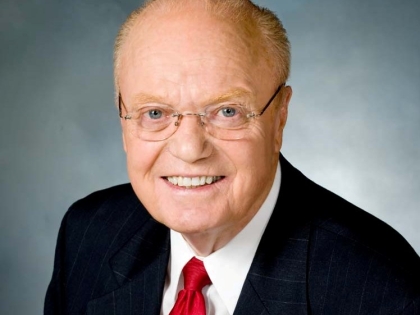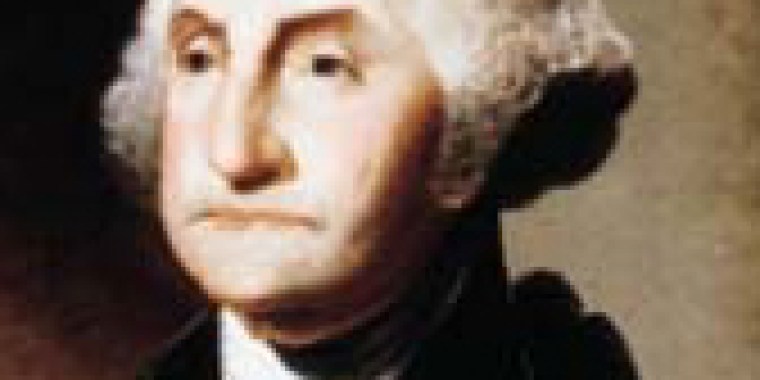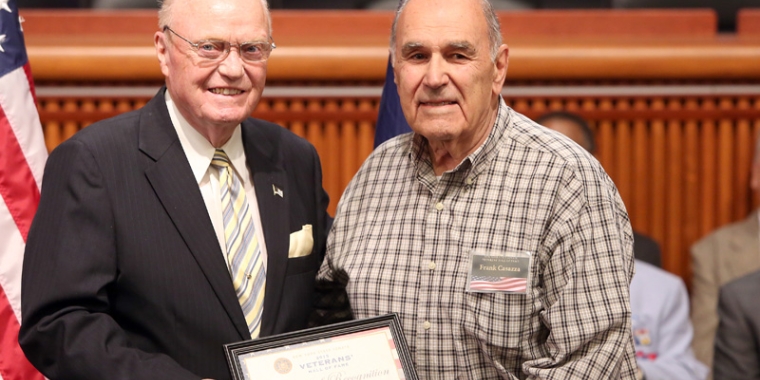
Senator Farley Discusses The Importance Of Honoring Our Nation's Presidents

February is a great month for learning about our nation's history, as two of the great Presidents from the early years of our Nation's history were born then. This year, February 21st is Presidents' Day, the day we honor all United States Presidents, but especially Presidents George Washington and Abraham Lincoln. Abraham Lincoln, the sixteenth President of the United States and the man who helped our Nation through the Civil War, and George Washington, the first President and the man who helped our struggling Nation gain its independence, were born on February 12th and February 22nd, respectively.
President George Washington had a strong tie to New York State as this State was one of the major battlegrounds of the Revolutionary War. According to the New York State Library, New York was the background for one-third of the battles fought during the war. Washington-related sites in New York include the headquarters he used in Newburgh from April 1782 to August 1783; the Fraunces Tavern in New York City where he bade farewell to his officers at the end of the war; and the location in New York City where he was inaugurated as our nation’s first president on April 30, 1789.
The State Library, located in Albany, is a wonderful asset to New Yorkers. Within its vast collections is President Washington's first draft of his "Farewell Address," which was his letter of intent to not run for a third term as president. "Penned in Washington's own handwriting, complete with strikeouts and corrections, the 19-page document was drafted and sent to Alexander Hamilton for comment on May 15, 1796," according to the State Library. The New York Public Library (in New York City) has the final address.
The New York State Library also has President Lincoln's preliminary Emancipation Proclamation. After President Lincoln was assassinated in 1865, the New York State Legislature purchased this famous document for $1,000. In 1911, the Capitol in Albany was victim to a fire and the State Library's upper floors were destroyed. Luckily, a State Education Department employee saved document. (Unfortunately, the final manuscript of the Emancipation Proclamation fell victim to another fire -- the great Chicago fire of 1871). Other precious items that were saved during New York's Capitol fire included the original New York State Constitution and the copy of President Washington's Farewell Address.
A number of Presidents have been closely associated with the history of New York State, including Martin Van Buren, Millard Fillmore, Chester Arthur, Grover Cleveland, Theodore Roosevelt and Franklin D. Roosevelt, all of whom had resided in New York State. President Van Buren was born in Kinderhook, N.Y., and is buried at the Kinderhook Cemetery, while President Fillmore was born in Summerhill, N.Y., and is interred at Forest Lawn Cemetery in Buffalo, N.Y. President Arthur is buried in Albany. President Theodore Roosevelt was born in New York City and is buried in Young's Memorial Cemetery, Oyster Bay, N.Y. His cousin, President Franklin Roosevelt, is buried in Hyde Park, N.Y., the area where he was born. Presidents Van Buren, Cleveland and both Roosevelts had each served as Governor of New York State.
This area also has ties to presidential history. Located in Montgomery County, is the General Cochran Horse and Hay Farm. Built in 1790 by General Cochran, the homestead was for his father Dr. John Cochran, a close friend of President Washington and Director General of Hospitals during the Revolutionary War. A historical marker outside the 1790 Rice Homestead in Mayfield notes that Oliver Rice served under General Washington. George Washington also visited our area, staying in Schenectady’s Stockade neighborhood in 1775, and touring several sites in Montgomery County and the Mohawk Valley at the end of the war.
President Chester A. Arthur (in office from 1881 to 1885) graduated from Schenectady's Union College in 1848 and President James Carter (in office from 1977 to 1981) did graduate work at Union. There is a bronze statue of Chester Arthur on campus, near the entrance to Jackson Garden.
Grant Cottage at Mt. McGregor, Wilton, is where the 18th President of our Nation, President Ulysses Grant (in office from 1869 to 1877) spent the last six weeks of his life at this cottage finishing his memoirs. He died there on July 23, 1885. The building still contains furnishings, decorations and some of Grant's personal effects. It is open to visitors during the summer.


